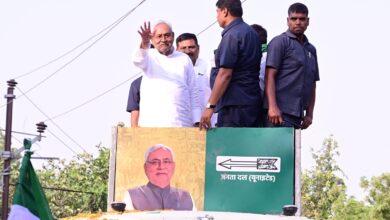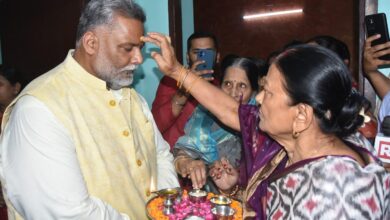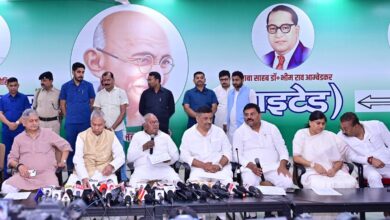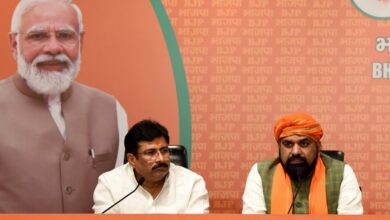Bihar Assembly Election in Time of Covid: Lessons from South Korea
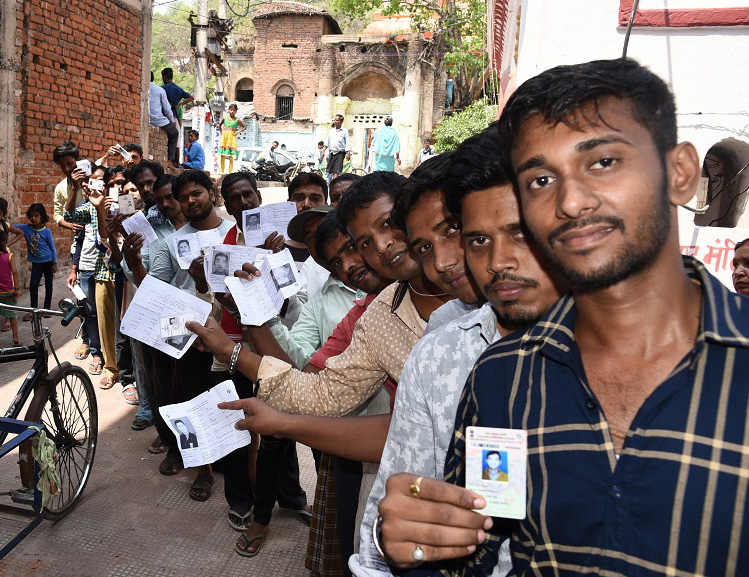
The term of the current legislative assembly in Bihar expires on 29th November 2020. As per the Representation of the People Act, 1951, the new legislative assembly need to be constituted before the expiry of its present term. So the assembly election process in Bihar must start in the next around three months and be completed by November end.
Elections in Bihar as also in the other parts of the country is like big festivals. It used to be colourful and raucous exercise. During election campaigns hundreds of thousands of people used to gather in election rallies to cheer their leaders. On the voting days, people often used to stand in long queues to cast their votes.
Coronavirus pandemic has brought disruptions in every walk of life and this is bound to have an impact on the elections. Can we celebrate the “festival of democracy” the way it used to be? Considering the current Covid-19 situation and continued spike in the cases, the answer, at least, until for the Bihar legislative assembly election, is No.
“We must understand that the world has fundamentally changed post COVID-19. Now the world will be Pre-Corona, Post-Corona just like the case of the World Wars. And this would entail significant changes in how we function,” Prime Minister Narendra Modi said while announcing the extension of lockdown in May.
The first major election in India in the “Post-Corona” era would be in Bihar to form the 17th Legislative Assembly in the state. The upcoming “festival of democracy” in Bihar can’t be the same as it used to be. This is going to be fundamentally different.
The first major election in India in the “Post-Corona” era would be in Bihar to form the 17th Legislative Assembly in the state. The upcoming “festival of democracy” in Bihar can’t be the same as it used to be. This is going to be fundamentally different. The Election Commission of India would have a mammoth task of conducting the election amid the Covid pandemic. However, this is not going to be the first election conducted amid the Covid pandemic. South Korea is the first major country to conduct parliamentary polls amid the coronavirus outbreak.
South Korea’s Election Amid Pandemic
The first large outbreak of Coronavirus cases outside China was in South Korea. The parliamentary election in South Korea was conducted in mid-April, which was the peak of the coronavirus outbreak globally. However, by that time South Korea had managed to bring the cases under control thanks to massive testing and intensive contact tracing. So South Korea presented a model in containing the Coronavirus outbreak, also successfully conducting an election in the crisis situation.
South Korea’s SOP
South Korea had put in place stringent Standard Operating Procedures (SOPs) for conducting the election amid the coronavirus pandemic. Polling stations were open at 6 am local time after disinfection. All the voters and people involved in conducting the election were mandatorily required to wear a mask. Everybody had to undergo temperature check upon arrival at the polling station.
Now the question is, should the people with higher than usual temperature or Covid-19 symptoms not be allowed to vote? Voting rights can’t be denied on the basis of disease or symptoms. All eligible voter must be given the opportunity to exercise their franchise. How South Korea managed it? Anyone whose temperature was higher than 37.5 Celsius (99.5 Fahrenheit) was led to a special booth. So nobody was denied the opportunity to vote. In fact, the voter turnout was 66.2 per cent, the highest in 28 years.
Other measures used by South Korea to contain spread of Coronavirus infection during the election process were mandatory use of hand sanitiser and plastic gloves when casting ballots and maintain 1 metre (40 inches) distance between each other.
Lessons for Bihar Election
The Standard Operating Procedures adopted by the election authorities in South Korea can potentially be replicated in Bihar election. It must be made mandatory for all the voters and personnel involved in the election process to use hand sanitiser, wear face mask, plastic gloves and maintain a distance of at least 1 metre between each other. Special care should be taken for cleanliness and sanitisation of polling booths.
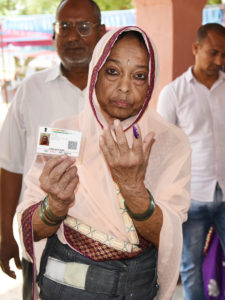
All the people who vote in India are marked their finger with indelible ink. All the voters at one booth is normally marked by a common brush. The use of a common brush would be problematic. So arrangements should be made to ensure that the brush used to mark one voter is not used for another. That means there should be a facility to mark each voter with a separate object.
Arrangements have to be made to ensure that voter is able to cast vote without touching the button. One solution could be making arrangements for small sticks or some pencil like object that can be used to press the button without touching.
Pressing the EVM button is another challenge. Arrangements have to be made to ensure that voter is able to cast vote without touching the button. One solution could be making arrangements for small sticks or some pencil like object that can be used to press the button without touching. It should be arranged for each voter and disposed of after a single use.
While measuring temperature could help in identifying people with possible Coronavirus infection, such voter can’t be denied his/her right to vote. Special arrangements should be made to enable voting by Covid suspected people. Special polling booths could be made in each block for voting by people who have high temperature or show other Covid symptoms. Special transport arrangements should be made for such people.
Decongesting Polling Booths
There are around 7.2 crore registered voters in Bihar. The total number of polling booths is nearly 72,000, spread across 46,500 locations. This means, for per 1000 voters there is one polling booth. Majority of the polling booths have close to 1000 registered voters while some caters to up to 1400 voters.
The election commission guideline is to have one booth per 1000 registered voters. With this ratio it won’t be possible to ensure social distancing required to contain the spread of Coronavirus. The number of voters at one booth should be capped at 500. This would require to more than double the number of polling booths. The number of polling booths should be increased to 1.5 lakh from the current around 72,000.
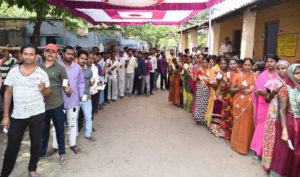
Increase in voting duration would also help in decongesting the polling booths. Voting could start a couple of hour earlier, maybe at 6 am instead of 8 am, and the end time could also be extended until say 6-7 pm.
The number of voters at one booth should be capped at 500. This would require to more than double the number of polling booths. The number of polling booths should be increased to 1.5 lakh from the current around 72,000.
A mobile app should be developed to provide booth level information to voters. It could give information like how many voters are present at the booth. This would help voters prioritise time and also maintain social distance. The contact tracing technology used in Aarogya Setu app could be helpful in it.
Increasing the number of booths would require more resources and personnel. This could be managed by spreading the election more phases. In 2015, assembly election in Bihar was held in five phases. This year it could be spread even more.
The Election Commission of India must come out with detailed SOPs to conduct the election. The procedures must be outlined and enforced strictly right from filing nominations and election campaigning to actual voting and counting.
While there is a stark difference in socio-economic condition of South Korea and Bihar, the model presented by South Korea during the parliamentary election in April is doable in Bihar, albeit with several challenges and increased pressure on resources.
Proper training of personnel involved in election process and awareness among voters about the SOPs would play a critical role in ensuring successful election during this time of Covid pandemic. While majority of the officials might have undergone election related trainings several times, this is an extra-ordinary situation and they should be given special training that includes health-related issues apart from the pros and cons of conducting free and fair elections.
Socio-Economic Condition
While making an argument for replication of a model it is important to note that there is a huge difference in demographic and economic status of Bihar and South Korea. In terms of population, Bihar is more than double the size of South Korea. South Korea’s population is just over 5 crore while Bihar’s population is estimated at around 12 crore. Population density of Bihar is more than double than that of South Korea.
South Korea’s per capita income is around 70 times more than that of Bihar. South Korea’s per capita income is over $40,000 (Rs30,00,000) against Bihar’s per capita income of Rs.43,000. Technologically South Korea is among the most advanced countries in the world. While there is a stark difference in socio-economic condition of South Korea and Bihar, the model presented by South Korea during the parliamentary election in April is doable in Bihar, albeit with several challenges and increased pressure on resources.

